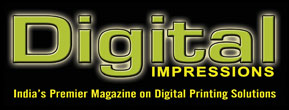In recent years, the resurgence of photobooks has redefined the way we encapsulate our cherished memories, with digital printing technology and specialty papers at the forefront of this creative revolution. This dynamic duo not only ensures unparalleled print quality but also elevates the tactile experience, making photobooks a cherished keepsake for generations to come.
The Photobook Renaissance
Photobooks have emerged as the epitome of visual
storytelling in the digital era, offering a tangible escape from
the ephemeral nature of digital images. Their resurgence can
be attributed to the widespread availability of smartphones
and digital cameras, which have empowered individuals to
capture and curate their life’s moments with unprecedented
ease.
Moreover, the advent of social media platforms has
fostered a culture of sharing and documenting experiences
visually, further fueling the demand for photobooks as a
tangible means of preserving memories. This resurgence is
not merely a nostalgic throwback but rather a testament to
our innate desire to hold onto moments that matter in a
tangible and meaningful way.
Digital Printing: The Catalyst for Creativity
Central to the rise of photobooks is digital printing
technology. Unlike traditional printing methods, such as
offset printing, which involve complex setups and high
upfront costs, digital printing offers unparalleled flexibility
and cost-effectiveness. With digital printing, images are
transferred directly from a digital file to the printing press,
eliminating the need for printing plates and lengthy setup
times.
One of the key advantages of digital printing is its ability to
accommodate short print runs. This is particularly
advantageous for photobooks, as it allows individuals to
order custom-designed books in small quantities, without
incurring exorbitant expenses. Whether you’re printing a
single copy for personal use or a small batch to distribute to
family and friends, digital printing offers a practical solution.
Furthermore, digital printing offers exceptional color
accuracy and image quality, ensuring that your photobook
faithfully reproduces the vibrancy and detail of your original
photos. This attention to detail is essential for preserving the
integrity of your memories and creating a visually stunning
keepsake.

Customization and Personalization
Another key driver of the popularity of digital printing for
photobooks is the ability to customize and personalize every
aspect of the book. From the layout and design to the paper
type and cover material, digital printing allows for a high
degree of customization, ensuring that each photobook is a
unique reflection of the individual’s style and personality.
Many digital printing services offer user-friendly design
tools and templates, allowing even novice users to create
professional-looking photobooks with ease. Whether you
prefer a clean and minimalist design or a more elaborate
layout with embellishments and text overlays, the
possibilities are virtually endless.
Elevating the Experience with Specialty Papers
While digital printing lays the foundation for photobook
production, the choice of paper plays a pivotal role in
shaping the tactile experience. Specialty papers offer a
myriad of textures, finishes, and weights, allowing individuals
to tailor their photobooks to suit their unique aesthetic
preferences.
From luxurious matte papers that lend a soft, velvety feel to
glossy papers that enhance color saturation and contrast,
the options are virtually limitless. Moreover, specialty papers
can add depth and dimension to photographs, accentuating
details and textures for a truly immersive viewing experience.
Beyond aesthetics, specialty papers also contribute to the
longevity and durability of photobooks. Archival-quality
papers are designed to resist fading and deterioration over
time, ensuring that memories remain as vibrant and vivid as
the day they were captured.
Looking to the Future
As we look to the future, the role of digital printing and
specialty papers in the photobook industry is poised for
continued innovation and growth. Advancements in printing
technology will further enhance print quality and efficiency,
while new developments in specialty papers will offer even
more options for customization and personalization.
Moreover, the increasing emphasis on sustainability and
eco-consciousness will drive the adoption of environmentally
friendly printing practices and materials. From recycled
papers to biodegradable inks, photobook printing will
become more environmentally sustainable without
compromising on quality or aesthetics.
In conclusion, the photobook resurgence represents a
marriage of digital innovation and tactile craftsmanship, with
digital printing and specialty papers serving as the dynamic
duo driving this creative revolution. As technology continues
to evolve and consumer preferences evolve, photobooks will
remain a cherished medium for preserving memories and
telling stories in a tangible and timeless format.
|

